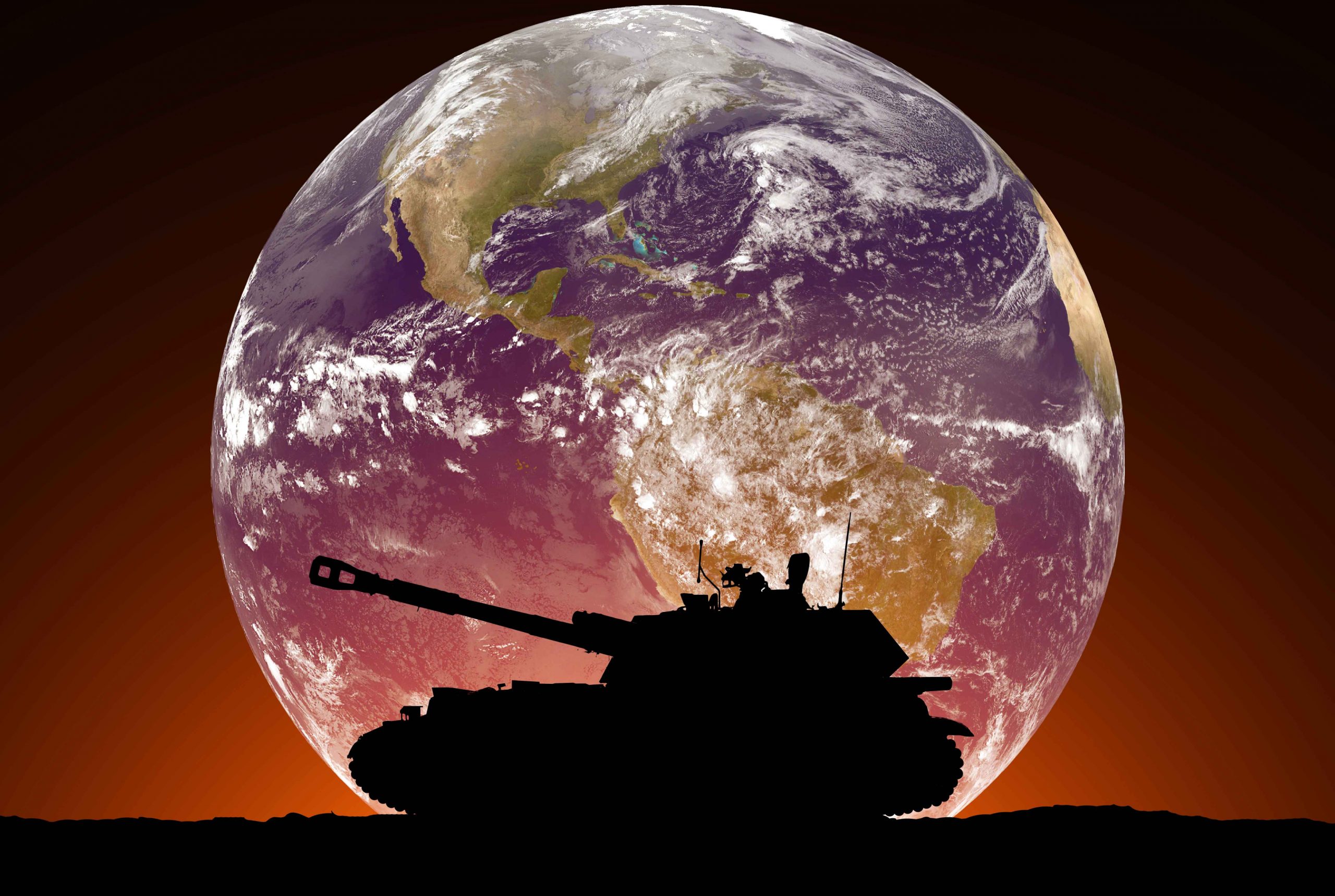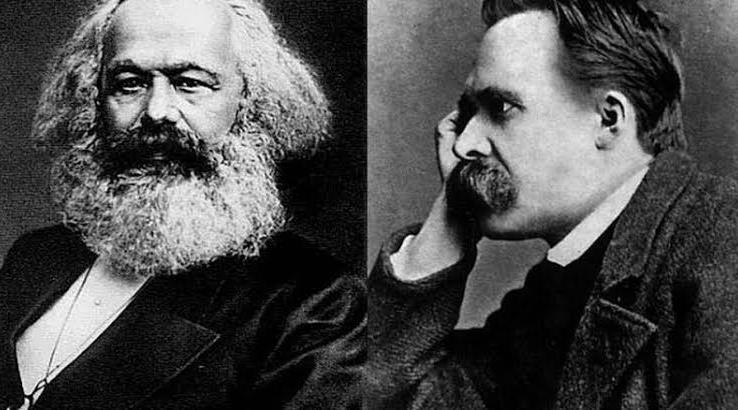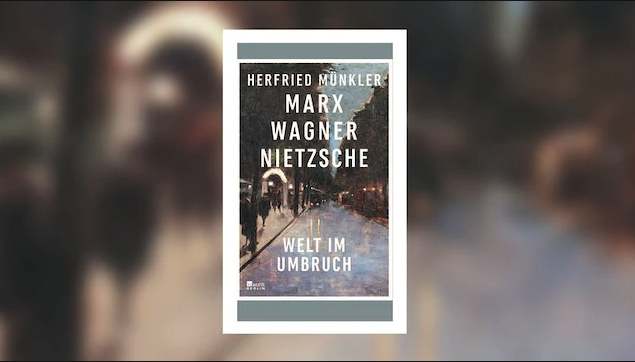Whether we like it or not, one of the gravest mistakes of Marx, who had some very important insights into the modern world, was his sharp attachment to the ideas of progress and development, which ultimately reflected a bourgeois outlook. For this reason, he admired the accumulation of what he called the productive forces, which he believed provided the dynamism of history, and which in modern terms was identified with industrial technology. His concern was to socialize and liberate this dynamic of development and mobilize it for the benefit of all. For this reason, he focused on the issue of property. Many other socialists, such as St. Simon, Fourier, and Proudhon, whom his friend Engels had so much despised and even cursed as “Romantics”, believed that the issue was not property, but industry and technology, which alienated man from nature, God, and his fellow human beings. This is often glossed over as the most fundamental difference between scientific socialism and romantic socialism.
Real socialism actually followed Marx’s direction. The most extreme stage of this is none other than Stalin and Mao, who passionately embraced the socialist path to industrialization. They failed to realize that industrialization is capitalism by nature, and that changing property relations within it would only lead to a form of capitalism, even the worst form, state capitalism. The post-soviet era has taught this lesson through bitter experience. Stalinism and Maoism are nothing but the most brutal pattern of capitalism. Far from changing it, they have only reinforced it with its deep contradictions. We can see this more clearly with the following reasoning: On a purely economic level, capital accumulation is a process that concentrates and centralizes labor and capital. This, in turn, shows us the political and administrative dimension of the process and the role of states and bureaucracies through Weber, who offers an insight as important as Marx. I remember that in many of my articles I wrote that the world established at the end of World War II was simply capitalist in all its variations, with the West’s welfare statist Ren capitalism and the East’s real socialism. The only difference between them was that the former opened up redistribution to democratic bargaining, while the latter tied it to state bounties.
I do not minimize this difference in terms of the consequences of the profound alienation common to both. The West’s democratic-looking redistributive processes of redistribution have produced an egoistic, individualistic, consumerist, self-interested type of human being, while the alienation in the other has produced a pure conformist type of human being whose desires to consume have been suppressed, but for which there is a deep longing. This is precisely what the consumer frenzy of post-Sovietism, when the bubble burst, was all about. It is a strange case of one form of collective alienation longing for another.
Today’s industrial “civilization” is in a state of collapse in all its structures. As Marx pointed out, the rise of new productive forces is shaking the industrial world violently. It seems that a concentrated and agglomerated world will gradually give way to a dispersed and sparse world as a result of capitalism’s suppression. Those who call this the new feudalism are not wrong. The disappearance of the Soviets was the first phase of this. Now it is the West’s turn. As Gramsci wrote, this is a painful period in which the old is moribund and the new has not yet completed itself. It is neither dying nor becoming. Unfortunately, these painful, turbulent times cannot be overcome without war. The new cannot fulfill itself without a great destruction.
Yes, we are talking about war. The Middle East wars that have been raging since the 1980s-1990s are the pathetic (pathetic) prelude to this. The Ukraine-Russia and Israel-Palestine wars are the current face. Europe, with or without NATO, is now preparing to play trump cards with Russia. Military expenditures of states are accelerating at an unbelievable rate. These are the last struggles of the industrial “civilization”. It seems that the industrial civilization, which has imposed a great price on humanity with its rise, is now preparing to impose the greatest price with its destruction. The question on everyone’s mind is whether this war will lead to a nuclear catastrophe. It is hard to predict, but even if it does not, I think the globalization of war will be at least equivalent to a nuclear catastrophe.
In the 19th century, it was quite easy to replace overalls with uniforms and to give a gun to the hand holding a hammer in the high discipline of the military. Today, this seems extremely difficult, especially for the West, which is preparing for war. Can an army emerge from an aging and highly manipulative population that has become slackened by consumerism? More concretely, can a European army be built? Yes, war technology seems to have reduced the need for soldiers considerably. But it cannot be said to have eliminated it completely. But if a global war breaks out, the question of how sufficient the existing army will be is a very serious issue on Europe’s agenda. Let’s see if they can handle it. I don’t think so. The fact that the war has a globalization dynamic strengthens the possibility of drawing the semi-central and peripheral nations with large and young populations into this black hole. Europe will inevitably start to develop projects to build recruitment armies that will die for it. The likely global war seems to be between recruiting armies. Let us not be surprised if Europe develops a new policy on the gnawing refugee issue in the coming days, opens the door to military service for them, and makes those who come to the continent in the hope of overalls wear uniforms… In this way, xenophobia will be suppressed and uncontrolled asylum processes will be brought under control. You know, they know how to kill at least two birds with one stone. But it is important to remember that in the final analysis, the winner will be the forces that are preparing the new sparse and decentralized world.




